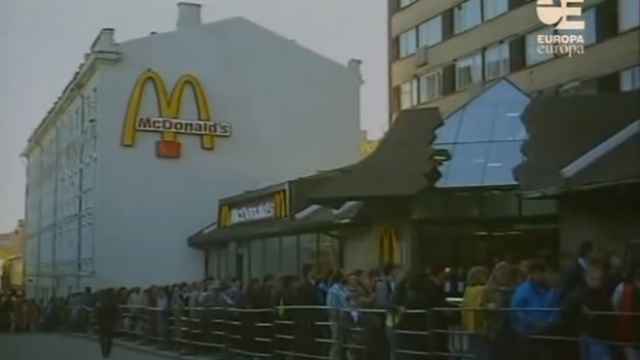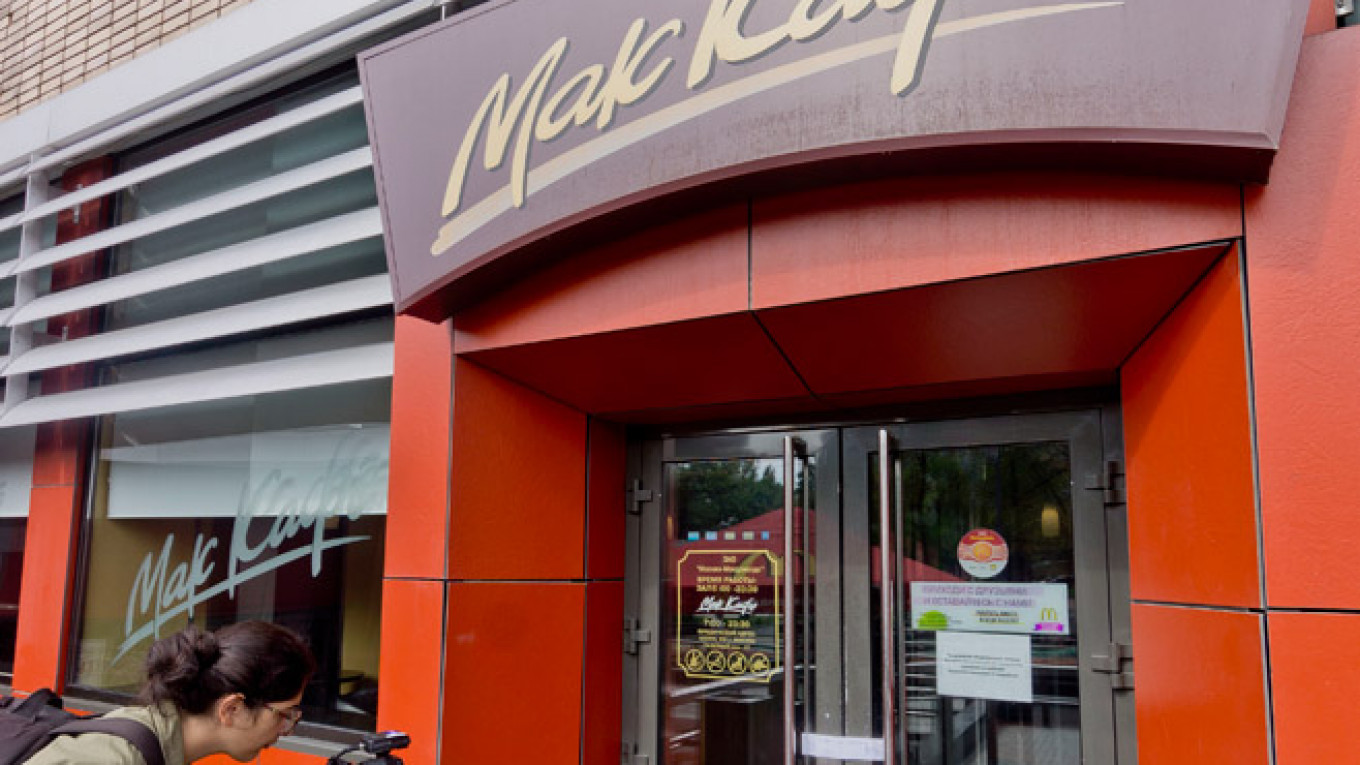By Mitya Kushelevich for Calvert Journal
In Russia, we don't panic easily. We get used to change fairly quickly. On the day of the self-imposed embargo of Western food, my Facebook page was flooded by jokes about delicious Belarussian mussels and toothsome Chinese ham, some of them already in comic strip form. The reality is that we'll get the same food with a "Made in Belarus" sticker glued on. And a new price, of course. Let those girls cry over the loss of mascarpone, we'll still have our Scottish whiskey and Irish stout, those most sacred of items.
But the closure of the first McDonald's — and the more that followed amid sanitation concerns — was different. People got long faces. Everything about this particular branch of the American fast-food giant was iconic for a person born in Soviet Russia. Just as St. Petersburg was once considered our "window to Europe," this restaurant was our "window to the world." Opened on the last day of 1990, the last New Year's Eve of the Soviet Union's existence, for a symbolic yearly rent of one ruble, the McDonald's represented the change that we'd all been waiting for.
Atop a nearby building was a Coca-Cola sign — another first for the country — that would shine in the darkness, brighter than the red stars atop the Kremlin towers. On the opposite side of the street stood a bronze of Pushkin, the poet, the conscience and soul of Russian culture, watching over as people crossed the line into another world. Together, Ronald McDonald and Coca-Cola's red Santa represented a pair of freedom-loving superheroes. Add the romantic poet across the road and you have the holy trinity, symbolizing all that is important to Russians: eating, drinking and contemplating the Russian soul.
Everybody wanted to try it, from the janitor to the professor. The lines were long, forming rings around the square like a gargantuan python trying to squeeze the life out of the trees and the fountains within. We didn't know what fast food was. We thought McDonald's was a proper restaurant serving American cuisine; it probably tasted like freedom and we wanted to sample it.
The summer came but the lines just kept growing with people from other cities swarming in just for a bite of a hamburger. Finally my mom decided we should give it a try. We stood under the melting sun for about eight hours. That wasn't so much of a problem as we were used to standing in lines for days just to get our monthly ration of sugar and tea. And that without the expectation of any odd-looking yellow clowns to serve us food.

Lines for McDonald's in 1990 stretched all the way around the square.
Once inside we were blown away by the number of young cashiers behind the huge counter, smiling, moving like bees, serving one meal after another. Nothing like our fat old ladies in white gowns sitting in front of empty shelves,? pyramids of dusty canned food as window dressing. In our excitement, we ordered one of everything, super size, like everyone around us. My mom probably spent our monthly savings on it. I still remember how insanely huge the milkshake looked and I didn't know how to hold a Big Mac with my tiny hands — I was 9 at the time — so it landed on the ground after the first bite. A tear rolled down my cheek and my mom stormed off for a new burger.
Everything tasted more intense than anything I'd ever tried before. I ate and drank and chewed like it was my last meal on earth. About 10 minutes and 5,000 calories later, my body alerted me to the fact that it wasn't quite able to digest all the fatty deliciousness and that it was probably a good time to check out how an American toilet looked like from the inside. I wasn't alone: The lines to the toilets, especially the women's, were almost as long as the lines outside.
Now, 23 years later, there are no romantic sentiments toward McDonald's. Still the closing of the very first branch is the writing on the wall for a lot of Russians. The message is clear and it's not aimed at Americans, it's aimed at us: The window to the world is closing.
This article first appeared in the online magazine The Calvert Journal, a guide to a creative Russia.
Contact the author at artsreporter@imedia.ru


